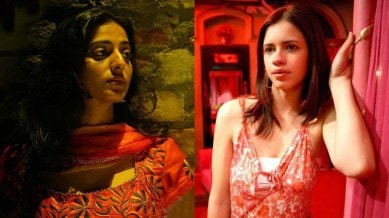Click here to follow Screen Digital on YouTube and stay updated with the latest from the world of cinema.

In the late 2000s, Abhay Deol was the darling of independent cinema in India and Anurag Kashyap was known as the director whose films Paanch and Black Friday had only been seen by those who were sneaky enough to find torrents. So when these two got together to make their interpretation of Devdas, the audience did not know what to expect. Dev.D was one of those films that was possibly going to reach a small group of film fans – the ones who actively looked out for the next Anurag Kashyap film and those who were extremely charmed by Abhay’s Oye Lucky Lucky Oye and Manorama Six Feet Under. Dev.D was supposed to be a ‘new-age Devdas’ and after watching Sanjay Leela Bhansali’s rather overwhelming interpretation just a few years ago, the story was still quite clear in everyone’s memory. However, the experience of Dev.D was unlike anything that people had seen in the Shah Rukh Khan film.
Generations of filmmakers in India have been fascinated with the tragic story of Devdas. Written by Sarat Chandra Chattopadhyay in 1917, the story of a failed lover who drowns his sorrows in alcohol and blames his love story with Paro for his downward spiral, has had three fairly popular interpretations in Hindi cinema by Bimal Roy, Bhansali and Anurag Kashyap. The three films are set in different eras, star some of the most popular actors of their time and are tonally different from each other yet what remains consistent in them is their interpretation of the titular character. Across the three films, Dev is a self-destructive, selfish man who prefers to ignore his problems rather than dealing with them. But the three filmmakers choose to interpret their female characters differently and that’s what makes these adaptations fascinating.
ALSO READ | Anurag Kashyap says there is ‘zamindari’ system in Bollywood: ‘They want to own people’
Anurag’s Dev.D also chooses to end the film in a rather unorthodox way when he allows his Dev to live and gives him another chance at life. Unlike the other two films, here, Dev finds himself at rock bottom and after a near-death experience, he tries to get his act together. Towards the end of the film, he asks for Chandramukhi’s (Kalki Koechlin) help and surrenders. Unlike his predecessors, Abhay’s Dev comes back to his senses just before he loses everything and knows that he is not in a position to handle it all by himself. Chandramukhi, who has gotten the shorter end of the stick in most of the other interpretations, gets her due here and has a fresh start with Dev. In Bhansali’s version, Madhuri Dixit’s Chandramukhi is the sacrificing woman who is almost compared to Krishna’s Meera. She loves selflessly but Dev is far too involved in Paro to even notice this. But here, her love is acknowledged even when it is not reciprocated. And when he ultimately reciprocates, Dev acknowledges that his love for Paro was perhaps an illusion. Anurag’s choices here presented a rather novel take on the story of the man who has long been glorified for drinking himself to death.
In Bhansli’s film, Paro and Chandramukhi are treated with the best of clothes but their life revolves around that one man in their life. They both are ready to put up with his bad attitude and continue to make sacrifices until the end. But Anurag made it a point to tell us that both Paro and Chandramukhi could be without Dev and still live full lives.
Of course, Anurag’s style of filmmaking is vastly different from Sanjay Leela Bhansali but it is his point of view that sets his Devdas apart. There is a sense of romanticisation when you see Abhay’s Dev going through his many benders but Anurag gives his protagonist some of the biggest hurdles to cross. Abhay’s Dev is charged with seven murders but that doesn’t shake his soul. Until he faces death up close, he doesn’t snap into reality, which completely fits in with his selfish persona.
Abhay, who received the credit for coming up with the concept of the film, said it was of utter importance to him that the title character gets called out for his misogyny and the women in the story get their due. “I had read the book and I could see that the character was a chauvinist, a misogynist, entitled, and arrogant. Yet he had been romanticized for decades! The women on the other hand were strong and had integrity, but there was still that expectation for them to love their man no matter what. I wanted to change that. I wanted to empower them, shed the image of the ‘good, devoted, woman’. It was time to make them independent, not defined by the man they love, or by men in general. Which is why Paro calls out Dev’s faults and puts him in his place,” he shared in an earlier Instagram post.
At a time when filmmakers like Sandeep Reddy Vanga have thrown morality out of the window with films like Animal, watching Anurag’s Dev.D gives you a sense that a character’s immoral choices do not necessarily dictate a filmmaker’s point of view. Dev could have easily been the hyper-macho man who could claim that he was living on his terms, and would continue to berate the women around him and given the kind of men we are seeing in our movies now, who knows, maybe the next Devdas would be a celebration of his toxic attitude.
Click here to follow Screen Digital on YouTube and stay updated with the latest from the world of cinema.